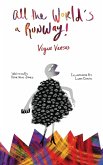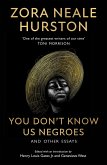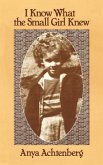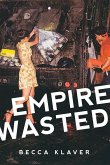All the Wasted Beauty of the World, a finalist for the 2012 Able Muse Book Award, extols the beautiful as readily as it expounds on the blemished. The reasoned commingles with the rambunctious, as with the speaker who declares that "our lives span diaper to diaper,/ and in between we piss on anyone/ we can." Little escapes notice in these poems of gutsy realism and formal deftness-the speaker in "Bellefontaine Cemetery" exhorts teens to "party on people's graves" and have "a few close shaves with county sheriffs," the carcass of a Ford truck intrudes on a hiking trail's gully, the homeless are lullabied to "find rest behind our dumpster/ . . . score a fifth of bourbon/ and find your stomach full." Richard Newman brings us a collection that prods and soars with the grit and beauty of the real world. PRAISE FOR ALL THE WASTED BEAUTY OF THE WORLD: All the Wasted Beauty of the World is masterful and magnetic, from the "galaxy of gnats" hovering in the St. Louis twilight to the way a backwoods junkyard "gnaws on a pile of old Ford bones." He sees a group of bored high school kids with "nothing to lose/ but stupid summer jobs and innocence," and captures with perfect acuity how "September rain in streetlight/ silvers the cypress needles, scatters new dimes/ among the nuisance alley mulberry trees." Newman's poems, with their formal, lapidary precision, their indelible portraits of life in the cheap bars, back alleys, and rough-hewn edges of the Midwest, surprise a hunger in us for a language larger, wilder, and unabashedly loftier than daily speech. -George Bilgere, author of Imperial The poems in All the Wasted Beauty of the World, are heady explorers. They roam from Lost Man Pass to Benton Park, from downtown St. Louis to Southern Indiana, all the while balancing gorgeous musicality with lyric originality. In the midst of the wandering, there is longing in these poems-for place, for order, for morning. There is urgency, too, and beauty, wasted and otherwise, in places we don't always expect it. Newman is a bold and masterful formalist in a free-verse world, and he uses sonnets, aubades, villanelles, and odes to reconcile the geographies of the interior and exterior. Again and again, this collection makes us recalibrate our true north and forces us to reconsider the world for all of the unpredictable places where we can find beauty. -Adrian Matejka, author of The Big Smoke Newman uses the power of recollection and imagery to craft odes, sonnets, villanelles, ballads, and free verse with titles like "Four Kids Pissing off the Overpass after a Cardinals Game." Each poem calls our attention to a rough-and-tumble, everyday America we often drive past but overlook. All the Wasted Beauty of the World returns us to the real and, consequently, the new by putting on the brakes and asking us to look, if only briefly, beyond our rear-views. -Dorianne Laux, author of The Book of Men ABOUT THE AUTHOR: Richard Newman is the author of the poetry collections Domestic Fugues (Steel Toe Books, 2009) and Borrowed Towns (Word Press, 2005), as well as several poetry chapbooks. His poems have appeared in Best American Poetry, Boulevard, Crab Orchard Review, Measure, New Letters, Poems & Plays, Poetry Daily, The Sun, Unsplendid, Verse Daily, and many other periodicals and anthologies. His poem "Bellefontaine Cemetery" won first place in The 2010 Ledge Poetry Awards. He lives in St. Louis, where he reviews books for the St. Louis Post-Dispatch and edits River Styx.








